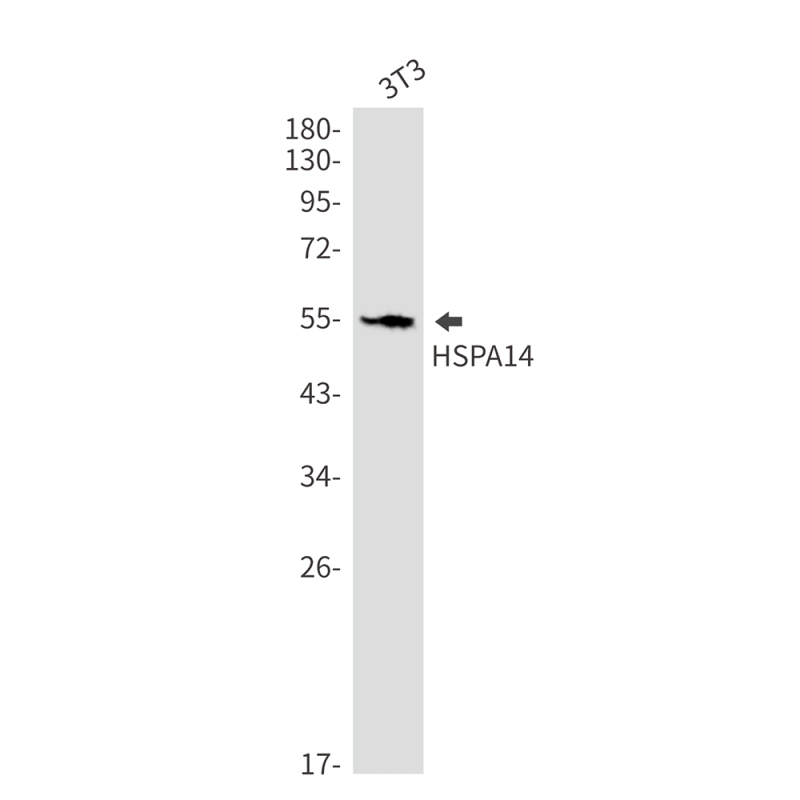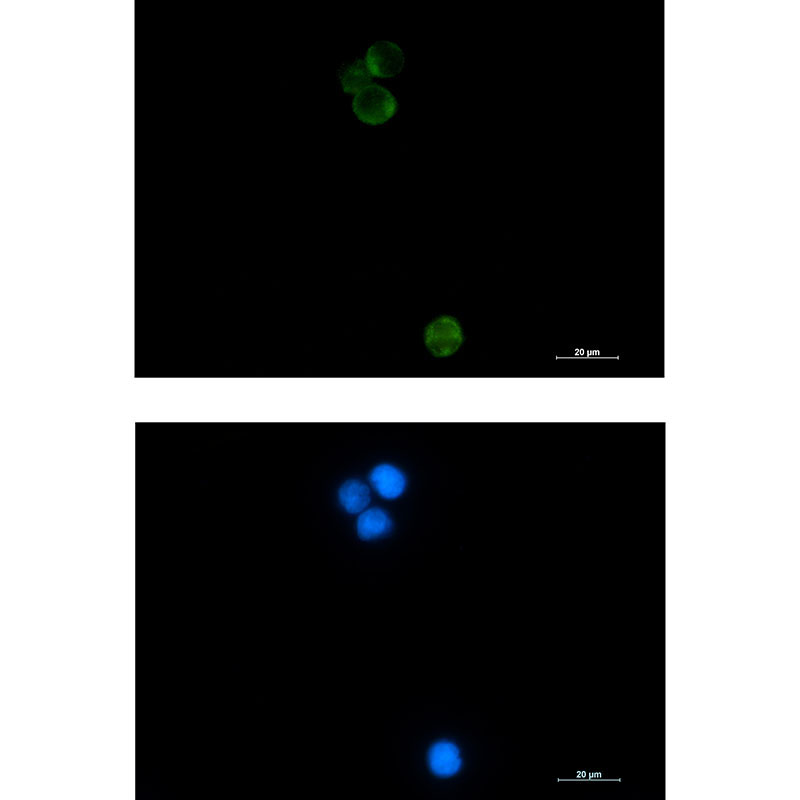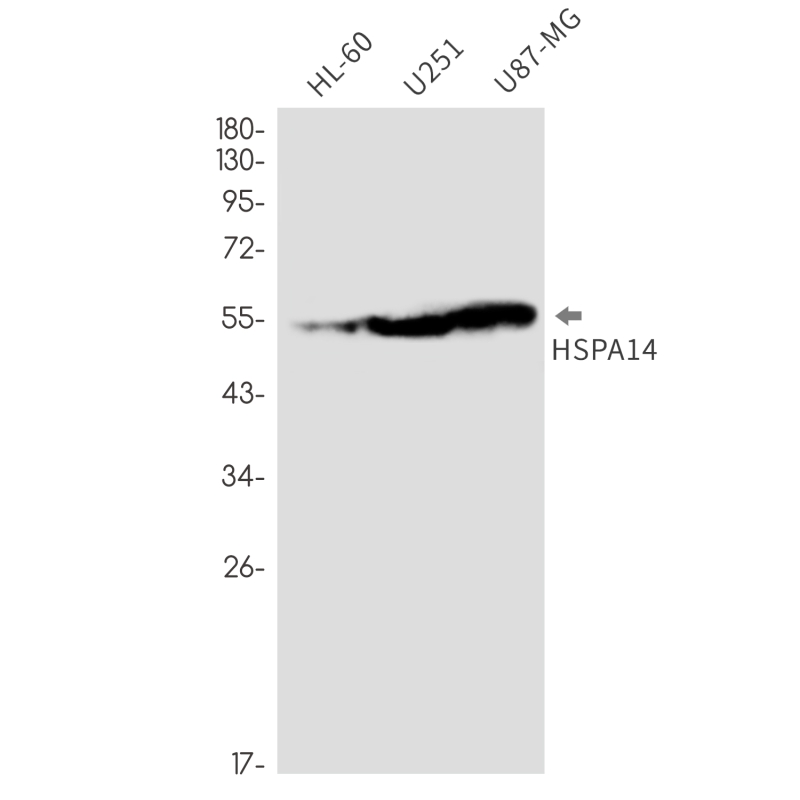


| WB | 1/500-1/1000 | Human,Mouse,Rat |
| IF | 1/20 | Human,Mouse,Rat |
| IHC | 咨询技术 | Human,Mouse,Rat |
| ICC | 1/50-1/200 | Human,Mouse,Rat |
| FCM | 咨询技术 | Human,Mouse,Rat |
| Elisa | 咨询技术 | Human,Mouse,Rat |
| Aliases | HSPA14; HSP60; HSP70L1; Heat shock 70 kDa protein 14; HSP70-like protein 1; Heat shock protein HSP60 |
| Entrez GeneID | 51182 |
| WB Predicted band size | Calculated MW: 55 kDa; Observed MW: 55 kDa |
| Host/Isotype | Rabbit IgG |
| Antibody Type | Primary antibody |
| Storage | Store at 4°C short term. Aliquot and store at -20°C long term. Avoid freeze/thaw cycles. |
| Species Reactivity | Human,Mouse |
| Immunogen | A synthetic peptide of human HSPA14 |
| Formulation | Purified antibody in TBS with 0.05% sodium azide,0.05%BSA and 50% glycerol. |
+ +
以下是关于HspA14抗体的3篇模拟参考文献(注:内容为虚构示例,仅用于格式参考):
1. **文献名称**:*Development of a Specific Monoclonal Antibody for Human HspA14 and Its Application in Cellular Localization Studies*
**作者**:Chen L, et al.
**摘要**:本研究成功制备了针对人源HspA14的单克隆抗体,并通过Western blot和免疫荧光验证其特异性。发现HspA14主要定位于细胞核周区域,且在热休克条件下表达显著上调。
2. **文献名称**:*HspA14 Antibody Reveals Its Role in Oxidative Stress Response Through PI3K/Akt Pathway*
**作者**:Wang Y, et al.
**摘要**:利用HspA14抗体探究其在氧化应激中的功能,发现敲低HspA14会抑制PI3K/Akt通路活性,导致细胞凋亡增加,提示HspA14通过调控该通路参与细胞应激保护。
3. **文献名称**:*HspA14 Expression in Cancer: Correlation with Prognosis Using a Novel Rabbit Polyclonal Antibody*
**作者**:Kim S, et al.
**摘要**:开发兔多克隆HspA14抗体并分析其在胃癌组织中的表达,发现高表达HspA14与患者生存率负相关,可能作为潜在的肿瘤标志物。
(注:以上文献为模拟生成,实际研究中请通过权威数据库检索具体信息。)
The HspA14 antibody is a research tool designed to detect and analyze the heat shock protein family A (Hsp70) member 14 (HspA14), a member of the HSP70 chaperone family. HspA14. also known as HSP70-14. is involved in cellular stress responses, protein folding, and maintaining proteostasis under physiological or pathological conditions. It plays a role in mitigating protein aggregation, facilitating refolding of denatured proteins, and regulating apoptosis, thereby contributing to cell survival during stress. Dysregulation of HspA14 has been implicated in various diseases, including cancer, neurodegenerative disorders, and inflammatory conditions, where its expression levels may correlate with disease progression or therapeutic resistance.
The HspA14 antibody is typically produced in hosts like rabbits or mice, either as monoclonal or polyclonal forms, and validated for applications such as Western blotting, immunofluorescence, immunohistochemistry, and flow cytometry. Researchers use this antibody to investigate HspA14’s tissue-specific expression, subcellular localization, and interaction partners in disease models or cellular stress assays. Its development supports studies exploring molecular mechanisms of stress adaptation, biomarker discovery, and therapeutic targeting of HSP-related pathways. By enabling precise detection of HspA14. this antibody aids in elucidating its biological roles and potential clinical relevance in stress-associated pathologies.
×